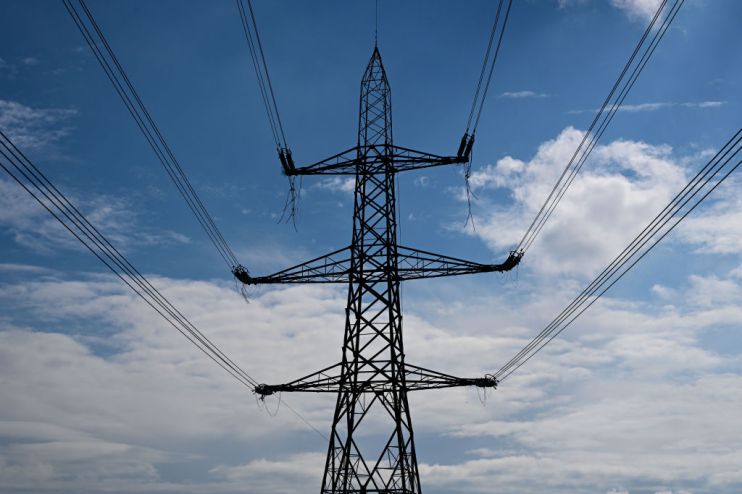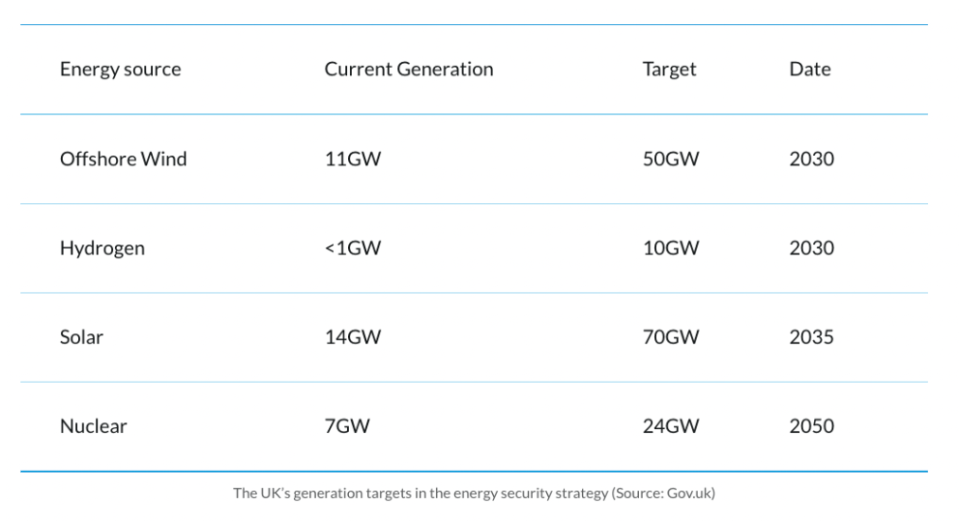National Grid urges ‘transparency’ as it commits £40bn to UK’s energy system

National Grid has called for stability in the UK’s investment climate, so it can ramp up infrastructure and help the country transition to a greener future.
Chief executive John Pettigrew told City A.M. that “transparency” was crucial for the decarbonisation of the grid, including clarity over supply chains, planning and its role in meeting both net zero pledges and the Government’s energy security targets.
He said: “We need transparency in terms of what work needs to be done. It is a huge ambitious target and a lot of investment is going to be needed over the next decade.”
National Grid is looking to confirm long-term plans for the power lines, pipelines, storage facilities and interconnectors needed to meet a vast influx of renewable power over the coming decades.
The power networks operator has today pledged £40bn investment in critical infrastructure over the next four years, raising its commitments from previous expectations of £30-35bn,
This includes £29bn targeted towards decarbonising energy networks across the country.
The commitment was featured in its freshly published half-year results, where National Grid posted soaring operating profits of £2.2bn for the six months of trading up to October – a sharp 50 per cent hike on the previous window.

The company’s hefty earnings were powered by further revenues from its acquisition of network operator Western Power Distribution, alongside the strong performance of its American business and the insurance proceeds from the Sellindge fire.
There were no updates to National Grid’s winter outlook – with the possibility of blackouts remaining only a worst-case possibility.
Meanwhile, asset growth is expected to rise to between eight and 10 per cent, with underlying earnings per share also expected to increase between six and eight per cent, up from between five and seven per cent, assuming an average exchange rate of £1 to $1.20.
National Grid’s robust performance will be a relief for Downing Street, as UK has been rocked with instability in recent years – with the pandemic and Russian squeeze on European gas the latest headwinds causing volatility in the sector amid growing expectations of a deep and painful recession.
This has led to growing challenges for energy transmission and electrification with more expensive supply chains, decreased investment confidence in the UK characterised by weak IPOs, and continued upheaval in Downing Street affecting the consistency of energy policy.
Fail to reform planning, plan to fail
Alongside investment pledges, Pettigrew argued there also needed to be changes to the country’s planning system – with the desire to reduce the development process of renewable projects increasingly urgent as the UK shifts away from unreliable overseas vendors for its energy.
The energy boss praised Downing Street’s recent push to reduce the planning process for domestic energy projects, however it is unclear whether new Prime Minister Rishi Sunak will be as supportive of reforms as his predecessor Liz Truss.
He said: “The UK Government has talked about halving the lifetime it takes for planning. That’s going be really important, if we’re going to build infrastructure in a timely fashion.”
Earlier this month, the National Grid boss has warned it would need to build seven times as much infrastructure over the current decade as it has constructed in the past 32 years to meet the country’s renewable energy goals.
To help ensure projects were green-lit, Pettigrew suggested the Government should consider how it can provide “benefits to local communities that are hosting infrastructure.”
He said: “We’re all going to benefit from net zero, but different communities are going to have different roles. We’re going be hosting this infrastructure, and we think it makes sense for them to be able to see some enduring benefits as a result of it.”